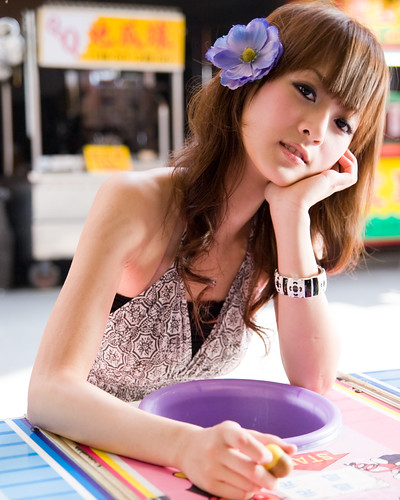For one reason or another, I hadn't been able to get out into the hills and mountains to have a much-needed breather from the noise, dirt and general chaos that is life in urbanized T'áiwān 台灣. One Tuesday was a national holiday, which meant I was engaged in the waseigo 和製語 term "family service" ファミリーサービス. The following Tuesday my kindergarten class had a field trip to a "farm". Last Tuesday I needed to visit the psychiatric clinic at the local general hospital, part of a long, ongoing story that I hope to blog on once the mess has been finally settled. And this Tuesday I had to stay home and take care of my daughter, who unfortunately has come down with a nasty cold.
So it was that this morning I found myself free as a result of the above-mentioned "situation", and decided to take advantage while the window of opportunity was open. However, said opening meant having to wake up and be out the door by around 5:20am. This is what the streets of downtown Fēngyuán 豐原 look like at half-past five in the morning:
It felt good to be out on the trails in the hills behind Chūngchèng Park 中正園, and the one-hour walk will hopefully leave me in better shape for when I return the mountains of Tàk'ēng 大坑 next week, weather permitting. However, I was far from alone this morning, for the hills were alive with sounds of Taiwanese talking and listening to music on portable radios. At times, the beautiful melodies of the birds singing in the early-morning air were drowned out by the cacophony of "hikers" enjoying the "outdoors". There's a good reason I usually venture out on weekday afternoons, instead.
Speaking of birds, I caught sight of this magnificent creature on the way back to my scooter:
Later in the day, on the way home after picking up Amber from her kindergarten, I noticed something odd about the license plate on one of those ubiquitous blue pickup trucks you see everywhere on this island:
Why does it read "Shinjuku" 新宿 next to the numbers? Perhaps it's an attempt to look cosmopolitan, like those ridiculous European Union license plate frames that seem to be popular these days (for those who don't know, Shinjuku is one of Tōkyō's 東京 biggest and busiest districts). If so, it should be pointed out to the truck driver that Tōkyō-area license plates either read "Shinagawa" 品川, "Nerima" 練馬, "Adachi" 足立, "Hachiōji" 八王子 or "Tama" 多摩 (the districts where the prefecture's motor vehicle bureaus are located), with "Shinagawa" by far holding the top position on the coolativity scale, with Kanagawa Prefecture's 神奈川県 "Yokohama" 横浜 plate running a close second.

































